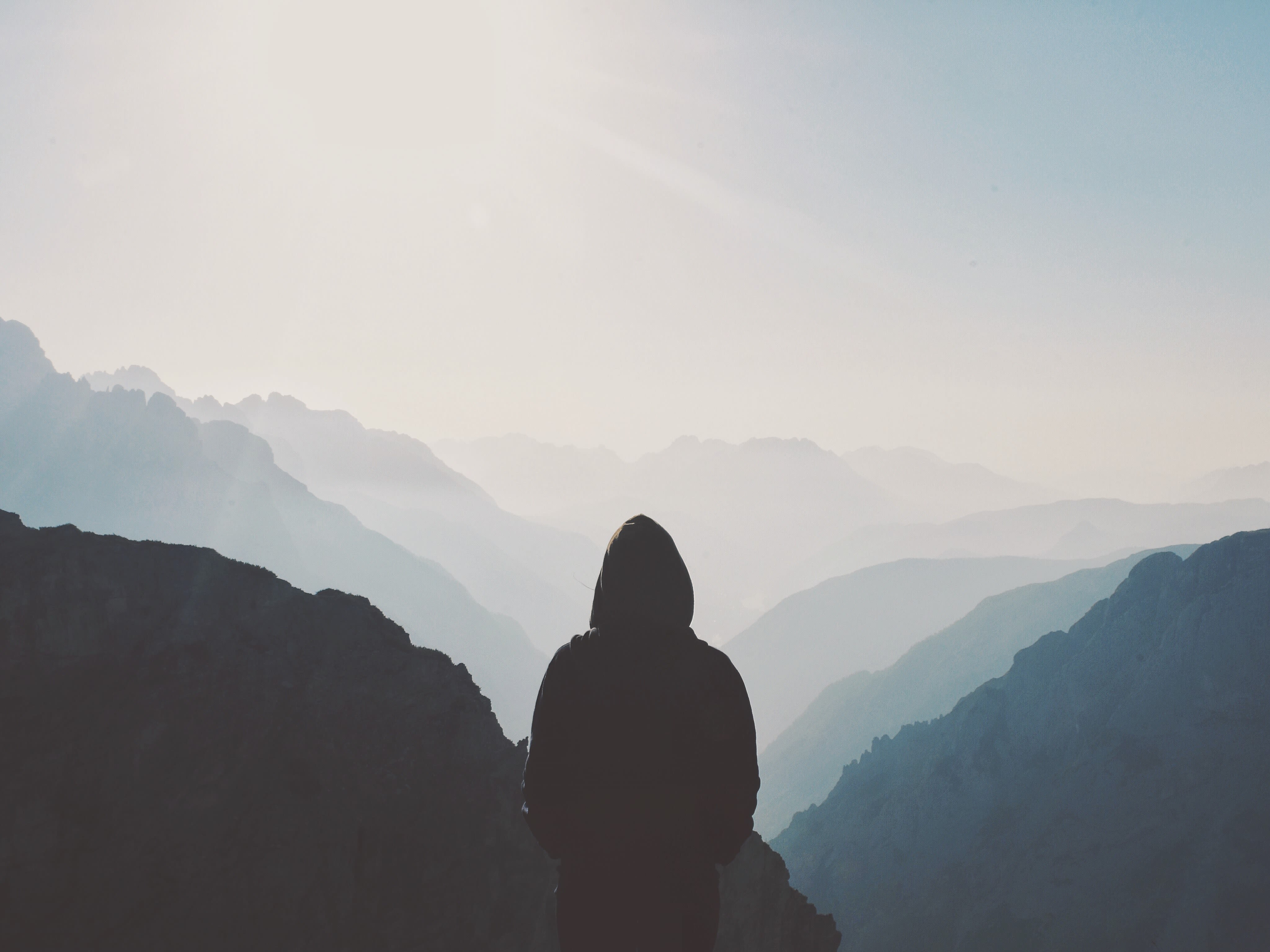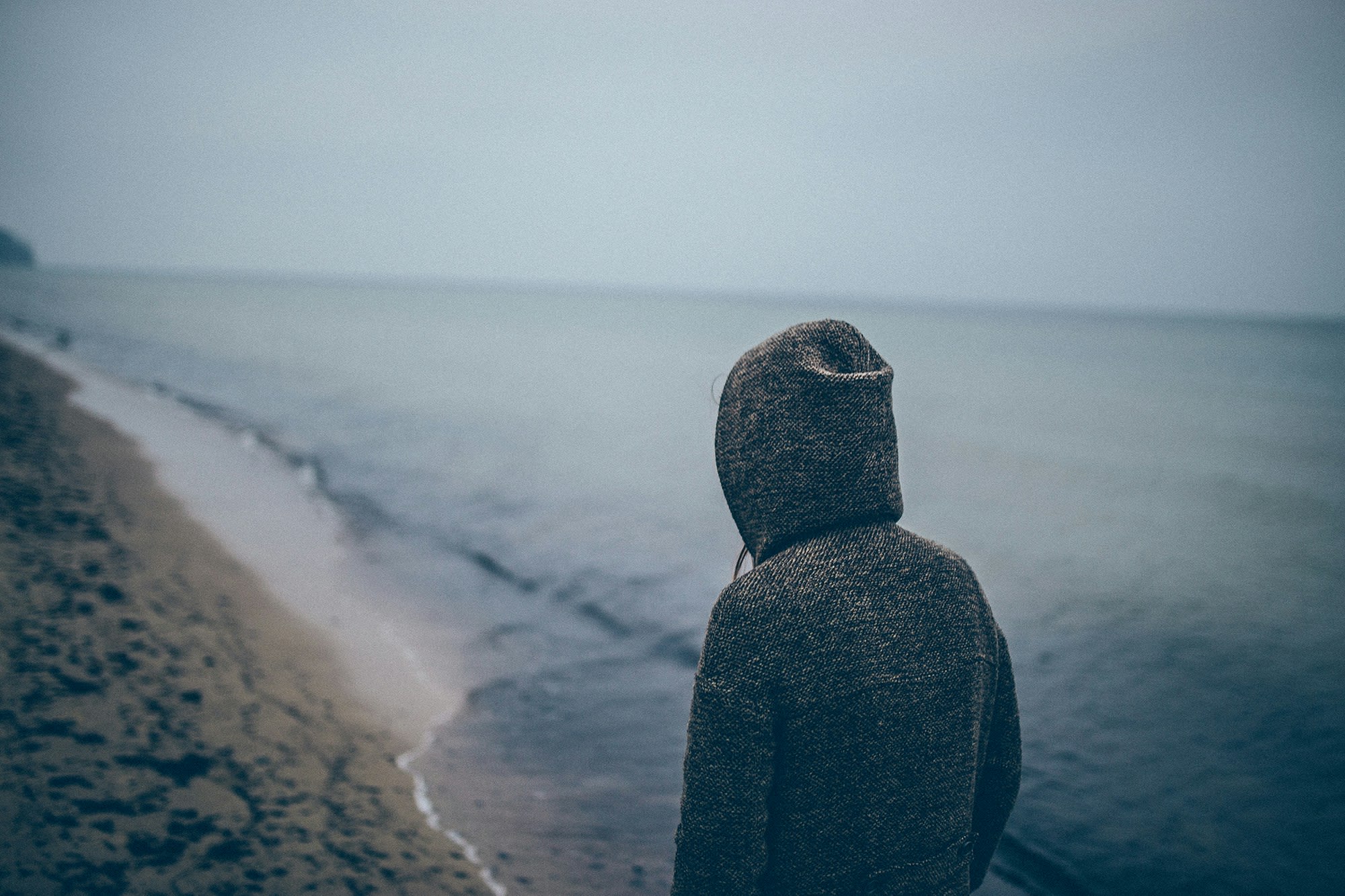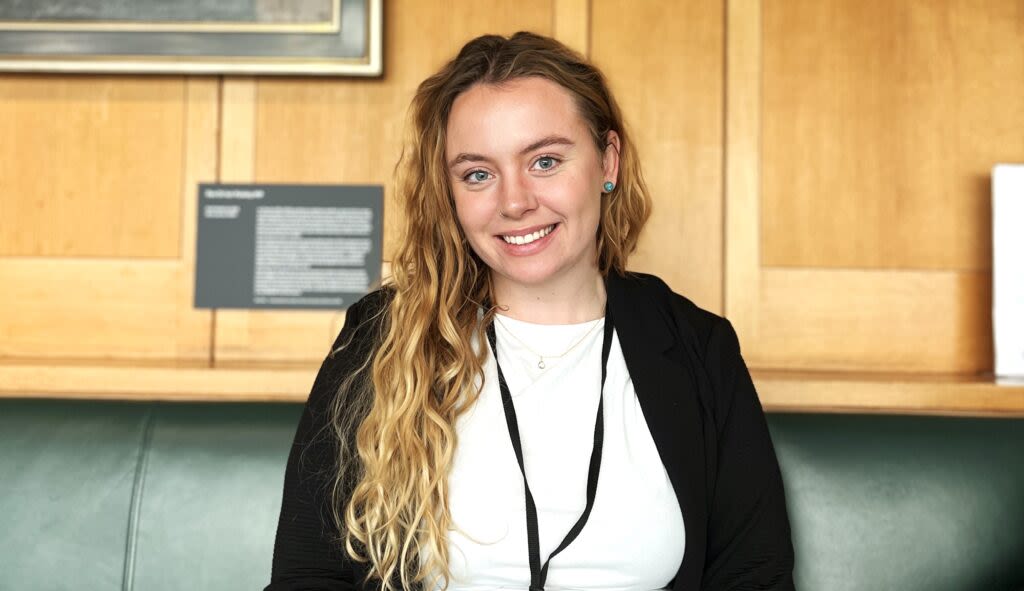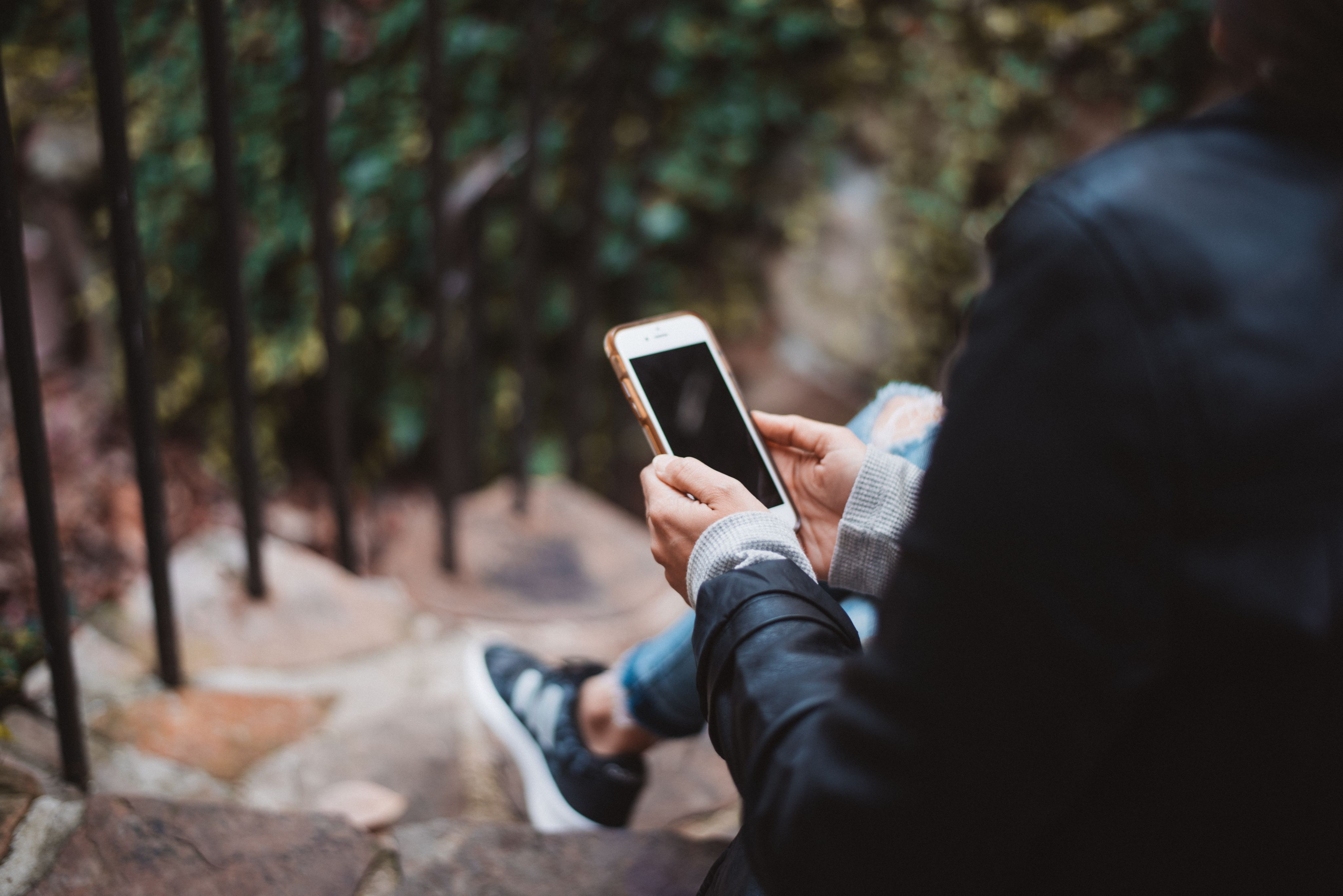Alone, Together
Generation Z's loneliness epidemic

One in four young people across the world feel lonely.
In the UK, 70% of young people between 18-24 experience loneliness.
Those aged between 16-29 are more than twice as likely to say that they feel lonely often or always (9.7%) compared to those over 70 (3.7%).
These statistics show that young people continue to feel lonelier than they did before the pandemic in 2018 (5%), as reported by the ONS.
Campaign to End Loneliness (2023), Centre for Social Justice (2024)
In 2023, the WHO declared that loneliness is 'a global public health concern.'
The phenomenon has been coined the loneliness epidemic.
But why are young people the group most seriously affected by this issue, and what can be done to stop it?
The Guardian, 2023
Why are young people now the loneliest generation?

Loneliness is an emotion that is likely to be felt by all of us at some point in our lives. Major life changes and periods of transition are particular risk factors, and those who are already lonely are likely to withdraw further into social isolation. This can lead to chronic loneliness, the state of feeling lonely most or all of the time, which has traditionally been seen as an especially serious problem among the elderly.
Over the past decade, however, this phenomenon has been turned on its head. In February, an article published by The Times revealed that young British adults are significantly more lonely than the rest of Europe, while this was not the case in 2013.
Additional data from the European Social Survey showed that compared to ten years ago, chronic loneliness among over 80s has reduced, while 13% of those in their 20s said that they felt lonely most or all of the time, rendering them the loneliest age cohort.
The data is clear: there is a crisis of loneliness among Generation Z. However, the reasons behind why young adults in Britain are particularly affected, as well as solutions to this worsening problem, is less evident.
Overuse of social media, the cost of living crisis, and the closure of "third spaces" such as pubs, bars and clubs form part of the explanation to why this demographic is finding it harder to cultivate meaningful social connections. Less explored, however, are psychological and cultural factors that lie at the very heart of what it means to be a young person today, how they interact and find their place within society.
"I'm noticing there is a lot of social anxiety."
Marina Sabolova, a psychotherapist and founder of the Bristol-based counselling service Ok Talk, feels that social skills are declining among younger generations.
"I think it's a big issue, and I do work with a lot of young people," she said. "When I was younger, in my teenage years, it didn't feel so lonely. We had less, but we somehow knew how to interact."
"It might be social media, obviously. I didn't have phones, or [they] were very limited. It was very expensive. You couldn't just send hundreds of messages, so there was no social media."
She feels that increasing automation, for example the option to order through an app in restaurants, is taking away opportunities for young people to "practice communication with strangers".
"I'm noticing there is a lot of social anxiety... it's not helping people. We need to socialise, and we need positive social interactions," she said.
"Apps right now need to focus on content and conversations to build community, not virality or likes."
Sonya Barlow, a tech entrepreneur who delivered a TEDx Talk drawing on her experiences with loneliness, believes that technology such as social media can actually be a powerful tool in building communities.
"My TED Talk was the first time I’d be been brave enough to mention my loneliness despite being a seemingly confident girl," she said. "It was pre-pandemic when many people weren’t even thinking [about it] or taking it seriously."
"I started feeling lonelier when I started work, as I wasn’t able to navigate the workplace [using my degree] and I wasn’t able to find friends or mentors."
Sonya founded the professional development platform Like Minded Females to promote meaningful connections among ambitious women.
"You can overcome loneliness or reduce it by understanding your skills, aligning your passions and finding people who get you. That’s one person," she said.
"Networking can also be daunting so we found having various community groups and events online and offline eases the tension and encourages a common sense of belonging, which is important for survival."
The professional consequences of youth loneliness
Loneliness is a major barrier to professional success among young people. Studies show that it diminishes confidence, face-to-face communication skills and job satisfaction. According to the Great Friendship Project, 48% of lonely young adults say that feeling lonely reduces their desire to progress in work.
"Apps right now need to focus on content and conversations to build community, not virality or likes... The LMF Network saved my life, and I use it as a platform to help save others, to build knowledge, networks and ultimately long lasting relationships for future success," Sonya said.
"The overload of information and noise makes people feel unequipped and uncomfortable," she added. "We through community remind people that the change comes from your actions, so small and sustainable actions shift mountains."
"Volunteering, joining a forum, mentorship, attending an event, saying hi, travelling, applying for a job, showing up … you name it."
Loneliness Awareness Week 2025 was launched this Monday, 9th June. The national campaign was started by loneliness charity Marmalade Trust in 2017 to help people build connections and to reduce the negative connotations associated with this common emotion.
New research carried out by IPSOS and Marmalade Trust reveals that the stigma around loneliness remains strong. While 82% percent of people experience loneliness, 61% have never spoken about it.
Tara Fisher, COO of Marmalade Trust, said: "It is important that we continue to raise awareness and reduce the stigma around loneliness. This starts with normalising conversations about it. We need to create safe spaces both online and offline where young people feel comfortable sharing their experiences without fear of judgment."
"Having peer support groups or discussion forums that highlight that feeling lonely is a natural human emotion, not a personal failing, in schools, colleges, youth clubs, and community organisations would be a great way to support young people to not feel shame or stigma."
"Having relatable stories, especially from influencers and role models, can also help to challenge negative stereotypes and show that seeking help is a sign of strength, not weakness," she added.
The death of the third place
Responding to data showing that the younger age cohort is now the loneliest generation, Tara said: "The reasons will be multiple, but this shift does reflect a complex mix of social and technological changes. Younger generations today face more uncertainty and pressure from social media comparisons and academic stress, to precarious employment and housing insecurity, which can all contribute to loneliness."
"The decline of community spaces, reduced opportunities for in-person connection, and the lasting impact of the pandemic have all added to this. Meanwhile, for the over-80s, there’s been some improvement in support services, technology adoption, and community initiatives aimed at older people, which may have slightly reduced their sense of isolation."
"However, underlying this is that loneliness can be felt by anyone at any age, at any time," she added.
There are currently a lack of initiatives to support young people who feel isolated and disconnected. Though the data indicating the existence of a youth loneliness crisis has been evident for some time, many assume that there are plenty of opportunities for this age cohort to socialise, when often quality rather than quantity of social connections are to blame for chronic loneliness.
"The causes will be multiple and diverse as loneliness is different for each person," Tara said. "It seems reasonable to say that the combination of reduced face-to-face social opportunities and increased online interaction, which, while convenient, often lacks depth and authenticity, are likely to be some of the main causes."
"Many young people find themselves stuck in a cycle of curated social media, which can heighten feelings of exclusion or comparison."
"Additionally, closures of “third spaces” like cafes, libraries, youth centres, and community hubs have stripped away places where spontaneous socialising could occur. The impact of the pandemic further accelerated this by normalising isolation."
"To help to address this, it would be great to see reinvestment in accessible community spaces and youth activities where young people can meet and build real connections," she said. "Digital literacy programs could also help young people use social media more mindfully, promoting connection rather than comparison."
"Finally, schools and workplaces could embed discussions around loneliness into their wellbeing strategies, to help break down stigma and empower young people to understand and recognise loneliness and to reach out for support."
Molly Taylor - domestic abuse survivor to loneliness activist

When Molly Taylor first experienced loneliness, she struggled to articulate what exactly she was feeling. While studying at Royal Holloway, she became increasingly withdrawn socially, spending days at a time without speaking to anyone. She sought treatment for anxiety and depression, before realising that she had been misdiagnosed.
A victim of child abuse and domestic violence, she had become estranged from her entire family that year, at the age of 21.
“I had to basically reinvent who Molly was. And that’s the year that I became chronically lonely. No wonder why, because I lost my whole family,” she said.
“I was silenced for 21 years, so I didn't have the agency, the power, the voice, to speak up on my own behalf and tell the world about what I'd been through.”
“I started to share these things with youth workers, and they made me realise that my lived experience was probably the best thing that could have happened to me, and will empower me in the future. I could let it take over me, or I could actually use it to my advantage.”
Over the past four years, the 25-year-old has worked to help other young people struggling with loneliness and has campaigned for the government to take action. She began by using social media to spread her message, and became a Young Advisor for The Belong Collective, which focuses exclusively on social isolation among this age group.
“I think digital activism is so accessible for so many. I wasn't necessarily protesting on the streets about loneliness, but I was being really vocal on TikTok, on Instagram, on LinkedIn, and reaching 1000s of people, and getting feedback from them,” she said.
“When I realized I had an impact, that inspired me to keep going.”
Her activism stepped up when the WHO declared that loneliness was a global public health concern. She started speaking to parliamentarians and helped them to campaign on the issue through a youth lens, drawing from her past experiences.
“That gave me a lot of strength, and it gave me a lot of courage and realisation that my lived experiences mattered,” she said.
“Actually, loneliness wasn’t a single issue. It was being felt not just by my age group, but so many people. Not just even in the UK, but it’s a world problem.”
“Because it gave me such empowerment to tackle it through campaigning events, I started to train youth workers across the country.”
She then decided to set up her own organisation, Alone No More, partnering with 10 organisations to deliver postcards to young people in need of support and resources.
The period of Covid-19 lockdowns also sparked increased media interest in the issue, with an All-Party Parliamentary Group (APPG) on Loneliness launching an inquiry in 2020. Now, she says, it is less high up on the agenda. Notably, the government role of Minister for Loneliness, which was created after the death of Jo Cox, was taken on by Conservative MP Stuart Andrew in 2022, who Molly says "really cared about his brief."
The position is now held by MP Stephanie Peacock, who is also the Minister for Sport, Media, Civil Society and Youth. Molly thinks that these are too many responsibilities for a single person to take on.
“It’s a big error I think, because so many of those things that they cover are so big, and so intersectional,” she said.
Molly thinks that the problem will inevitably get worse if the government does not take serious action, particularly as loneliness is at the root of many social concerns. She gives the example of incel behaviour and misogyny linked to the ‘male loneliness epidemic’, which she says is “giving them an excuse to commit horrendous crimes”.
“I definitely think that [loneliness] will increase if there is not a central strategy Task Force,” she said. “There is a loneliness strategy within the government, but it’s not in the cabinet, it’s in a small brief in the DCMS, led by a small team of civil servants. I met them six weeks ago, and [none of] the people in the room could tell me what they were working on.”
“Two years ago, they had a Minister for Loneliness, they had a bit more of an understanding of how to tackle it, and they had a lot more cross collaboration strategies… it’s really sad to see that it’s almost rolled back. It’s frustrating to me that it’s not more centralised,” she added.
After starting full-time work, Molly herself was unable to get involved in as much activism and hopes to dedicate more time to it now she has become self-employed. Most recently, she has started a newsletter advertising meaningful work, volunteering and other opportunities for young people. She says that she was motivated by research which has shown that people feel most lonely during transition periods, such as starting and finishing university.
“I personally didn't feel like I had any sense of community at university,” she said. “I think there’s a lot of intersectional problems at play here. It’s not just my own experiences, but also the accessibility of the infrastructure of the university, physically as well as socially.”
She gives an example of a space at her university that was alcohol-free during the day, but turned into a nightclub at night, which left her feeling alienated as a non-drinker.
“It really put me off, the fact that I was just seeing this place as really a nightclub, not really as somewhere to be able to chill out and be myself, and actually just not feel the pressure to be that other person that I didn't want to be,” she said. “So, I think that marginalised me further.”
Another barrier she identified was that university lecturers do not receive training or advice on how to bring students together. She noticed that she and her classmates felt less isolated when lecturers implemented simple initiatives to help build rapport, such as asking students for their names and running icebreaker activities.
“I think some lecturers are just purely there just to fill up the hours, but then some lecturers are there because they want to their students to thrive, and they will put in that effort,” she added.
In order to reach out to students that felt isolated, Molly set up a stall on her campus for Loneliness Awareness Week, featuring icebreakers and loneliness resources.
“I had about 50 students come to my stall, and one of them said that they felt lonely and that this is the first time they'd seen a stall, or someone literally just talking about loneliness for what it is, rather than tabooing it even more,” she said.
“[I asked] ‘have you ever felt lonely?’, and all of them said yes. Until that point, no one ever actually asked them that question.”
Molly has made great strides in her own loneliness journey. Having moved to Brighton, she says that she feels much more at home there. “Before I was living in London, I felt so isolated. I lived in a block of flats, paying £1000 rent,” she said.
“I found it really hard to break into friendships that were already existing, and it was a more family-oriented place [rather] than singular young people that were just trying to make it.”
She says that local initiatives have given her a greater sense of community. For example, she was offered a free yoga membership by her gym in exchange for helping out with cleaning for two hours per week.
“And that's just what Brighton's like. There's this level of human exchange where if you offer something, I'll offer you something too. And I've never experienced that in the rest of the UK,” she said.
“As a result, I feel like I can confidently say I no longer feel lonely, which is crazy, because four years ago, I was the complete opposite.”
